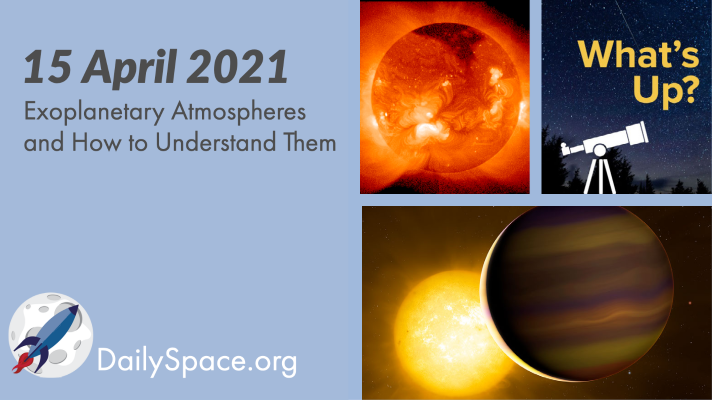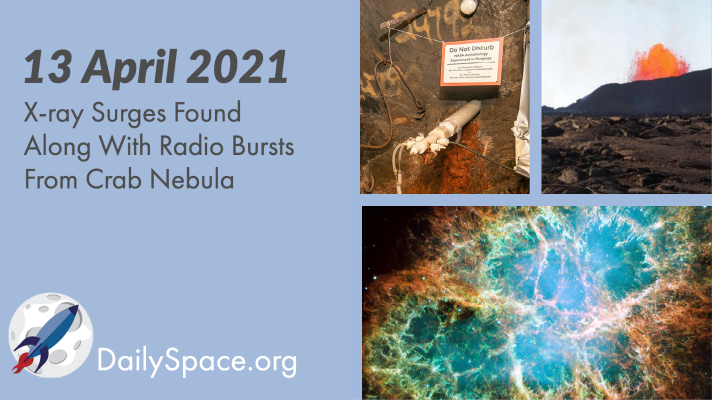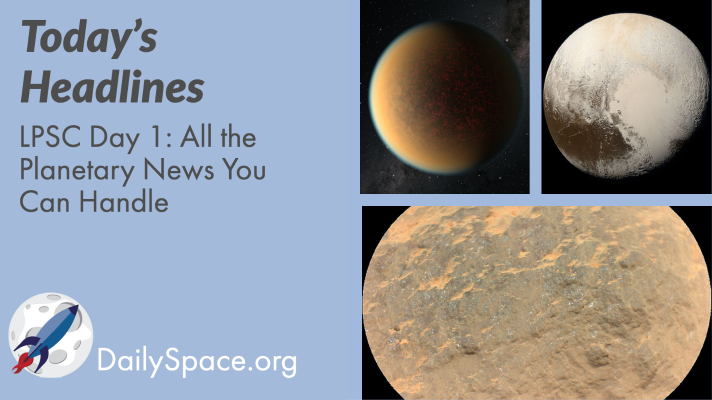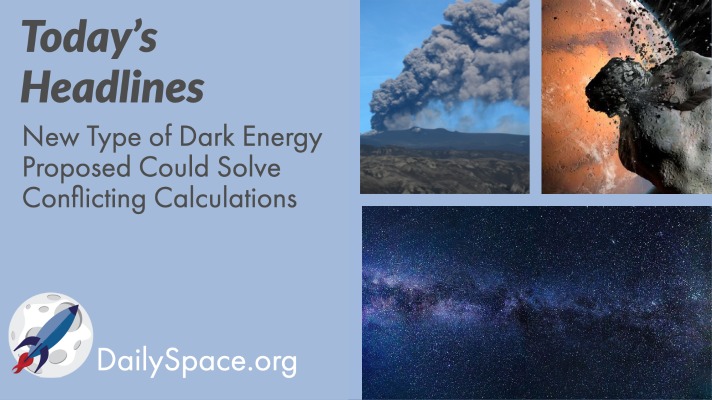
Apr 19, 2021 | Asteroids, Astrobiology, Daily Space, Earth, Exoplanets, Moon, Physics, Sky Watching, Stars, The Sun
Today’s news examines many of the ways in which scientists are trying to understand Earth’s atmosphere as well as the atmospheres of exoplanets, mostly in the hopes of figuring out the best way to tell if there is life on another world. Plus, sixty years of fusion power and this week’s What’s Up.

Apr 17, 2021 | Astrobiology, Daily Space, Earth, Exoplanets, Galaxies, Nebulae, Neutron Stars / Pulsars, Quasar, Spacecraft
Data analyzed from the NICER telescope aboard the ISS contains evidence of X-ray boosts accompanying radio burst detections, releasing more energy than expected as “giant radio pulses”. Plus, machine learning, intraterrestrial life, all the volcanoes, and updates on SN15 and Ingenuity.

Mar 21, 2021 | Daily Space, Exoplanets, Fast Radio Bursts, LPSC, Mars, Mars 2020, Neptune, Perseverance, Physics, Planets, Pluto & Charon
Monday was the first day of the Lunar and Planetary Science Conference, and we are going to spend at least the next two weeks sharing as much science as possible. The conference is taking place virtually this year, and of course, Mars is the big focus. Plus icy worlds, volcanic worlds, and exoplanets, and we’re bringing you a little of everything.

Mar 14, 2021 | Asteroids, Comets, Daily Space, Earth, Exoplanets, Galaxies, Mars 2020, Milky Way, Perseverance, Planets
A new study examines the formation of rocky worlds from dust particles containing ice and carbon, increasing the possibility that our own Milky Way galaxy could be filled with aquatic planets similar to Earth. Plus, a simulation of the Milky Way-Andromeda collision and an overview of asteroid Apophis.

Mar 10, 2021 | Asteroids, Climate Change, Daily Space, Earth, Exoplanets, JAXA, Perseverance, Stars
A new super-Earth has been discovered that has an extremely hot surface temperature, and this planet could be a boon for studying the atmospheres of rocky exoplanets. Plus, our daily news roundup, climate change, and how a petrified tree on Earth might help us hunt for fossils on Mars.

Mar 7, 2021 | Cosmology, Daily Space, Earth, Exoplanets, Mars, Sky Watching, Stars, The Sun
Issues with calculating the expansion rate of the universe have led to differences in the results, depending on the method used. A pair of physicists have proposed a new type of dark energy to resolve the conflict. Plus, volcanic ash and volcanoes, the composition of the Sun, more exoplanets, and Mars’ moons.








 We record most shows live, on Twitch. Follow us today to get alerts when we go live.
We record most shows live, on Twitch. Follow us today to get alerts when we go live.